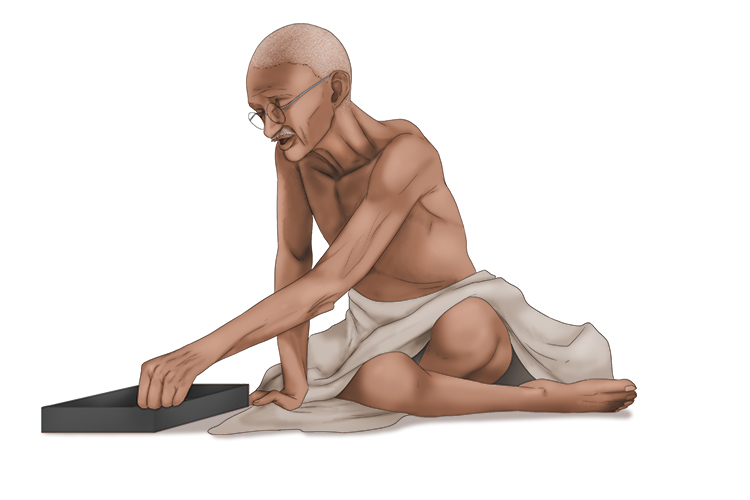Ahimsa – Non-harming or "Do no harm" - a personal virtue and guiding principle of Hinduism
(Pronounced uh-him-suh)
To remember the meaning of the Hindu term Ahimsa, use the following mnemonic:
A hymn was sung (ahimsa) about doing no harm, which helped reinforce this guiding principle.

Note: It is true that many Hindu worshippers sing hymns, which they call bhajans.
Ahimsa – or "Do no harm" – is a principle that is observed to different degrees by different faiths.
Some Jains (the followers of Jainism, a religion founded in India in the 6th century BCE) take ahimsa so seriously they use special brooms to clear the path in front of them as they walk, in case they tread on insects or other tiny life forms. They also refuse to take any kind of life for food, eating only fallen fruit from trees and plants.
However, less strict Jains, and most Hindus and Buddhists, take a more practical view of ahimsa: they respect and want to preserve life, but don't take it to the kind of extremes that make normal life impossible.
An interesting aspect of ahimsa is that it applies to ideas as well as life: in other words, Hindus, as well as Buddhists and Jains, believe that their thoughts and ideas should likewise do no harm, a discipline that leads to purer thought and less conflict.
NOTE: Probably the most famous practitioner of ahimsa was Mahatma Gandhi, whose non-violent campaign against British rule in India won great respect.





